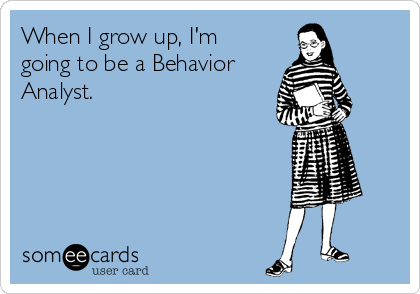
By Alec Deyong
“What makes him do the things he does?” This is a question that many ask about Kanye West, but for Board Certified Behavior Analyst Angela Craven, it is actually her job. Figuring out what causes behaviors and how to modify them is the focus of her career as a behavior analyst and was the focus of her Brown Bag.

Craven defined behavior as “everything we think, say and do.” If this seems like an awfully large field to cover, that is because it is. She explained that a behavior never comes “out of the blue.” There is always a reason, a cause. Her job is identifying an environmental cause for a specific behavior and developing a plan to change it.
At this week’s Brown Bag in PAC 222, Angela Craven spoke to the audience of students and faculty about her career as a behavior analyst and what exactly the field is. As a licensed and board certified behavior analyst that has had hundreds of clients, she pulled from her experience and condensed the field into the 50-minute Brown Bag.

So, how does Kanye West play into this? Well, Craven uses Kanye as a case study of sorts. While recognizing the legitimacy and possibility of bipolar disorder and narcissism, she explained that “diagnosing disorders is necessary, but not sufficient.” She went on to say that looking at patterns in the environment and the consequences of Kanye’s behavior helps to analyze why the behavior is happening. When he tweets or says something controversial, does his music become more popular? When he does something crazy do his sales jump?
She also spoke on the life of a behavior analyst and what they do all day. Most of her work is individual services for clients with developmental disabilities. She even shared that before speaking at McKendree, she had to wake up early and go to a client in the morning. These individual services usually involve her developing a plan to change the behavior and training others, such as family and caregivers, to use it, as she cannot always be there.
She also shared some of her own cases that displayed the day-to-day work of a behavior analyst. Across three cases that she handled personally, she discussed the behaviors to be targeted and what the causes might be. She then shared the plans developed for the clients and how she carried them out. The three cases shared with the Brown Bag audience all ended in the patient becoming more independent and greatly reducing the target behaviors.
This is not the last McKendree will see of Angela Craven however. If the topic interests you, Craven will be holding an intro to applied behavior analysis course in which students will become registered behavior technicians. This course, PSY 380, will be offered this Spring.